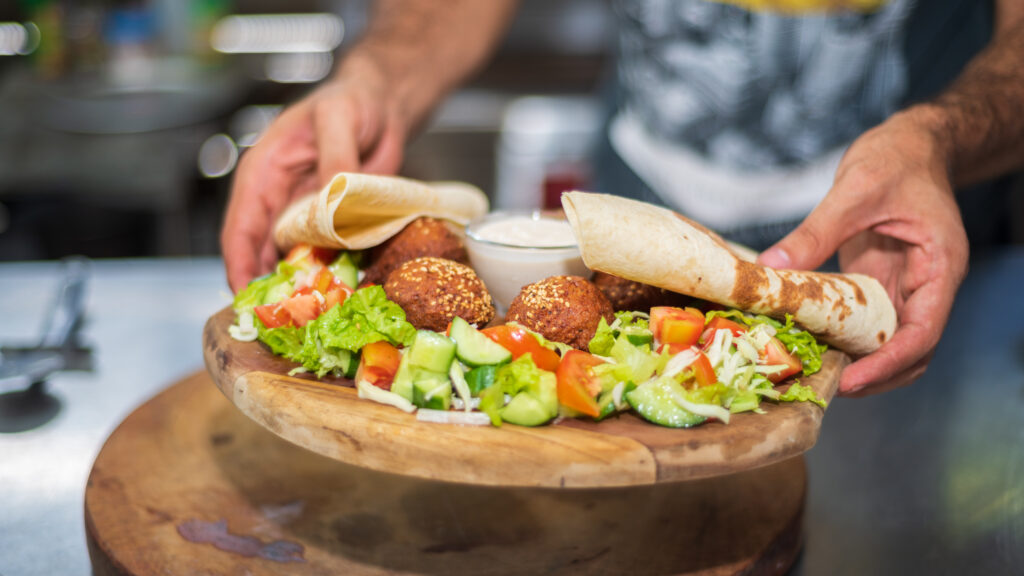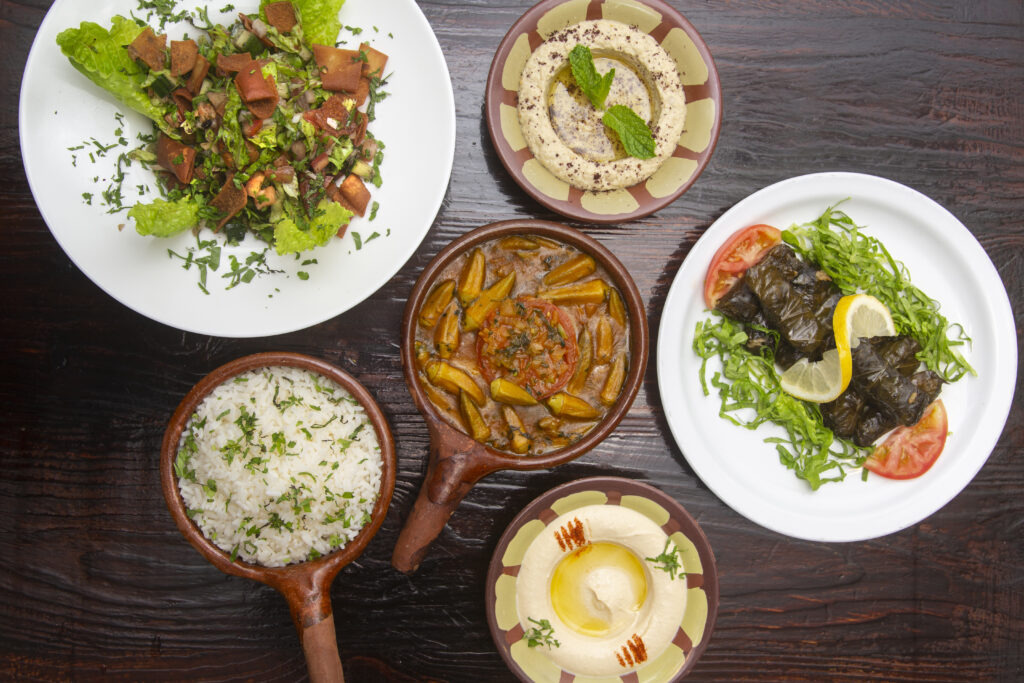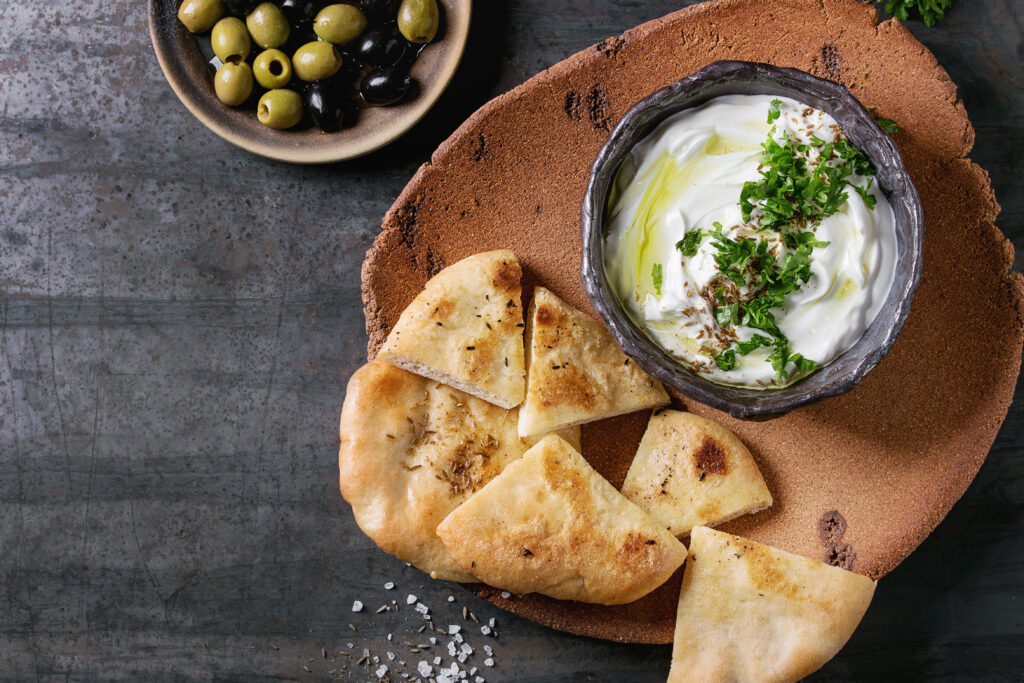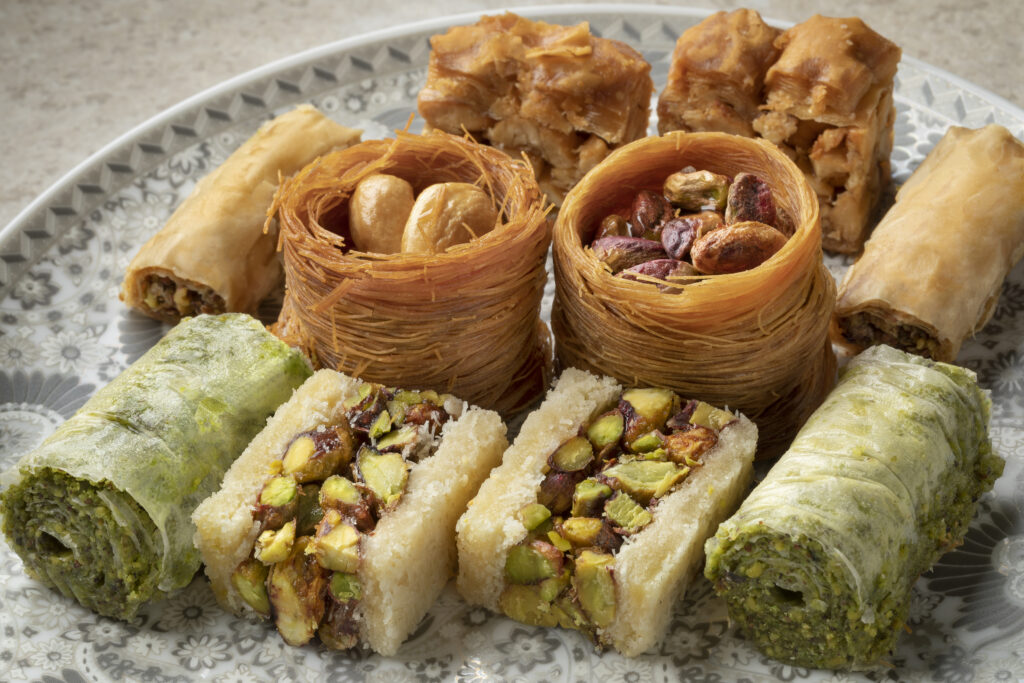A country small in size but immense in culture, Lebanon offers a fascinating mosaic of customs and cuisine that reflects its rich history and cultural diversity. Known for its beautiful scenery that ranges from snow-capped mountains to warm Mediterranean beaches, Lebanon is also a melting pot of traditions and flavors. In this article, we will explore some of the most interesting curiosities of Lebanese culture and gastronomy.
1. A Crossroads of Cultures
Lebanon has historically been a meeting point of diverse civilizations, resulting in a rich and diverse culture. This amalgam of influences is reflected in their language, customs and, especially, in their cuisine. Lebanese cuisine incorporates elements of Turkish, Greek, French, and Arabic cuisine, creating a unique blend that delights palates around the world.
2. The Importance of Family and Community
In Lebanese culture, family and community are at the heart of it. Family gatherings, often around the dinner table, are an essential part of social life. These gatherings are not only an opportunity to enjoy delicious meals, but also to strengthen family and community bonds.
3. Mezze: A Gastronomic Tradition
One of the most distinctive features of Lebanese cuisine is mezze, a series of small dishes served before the main course. Mezze can include a variety of foods, from olives and cheese to kibbeh, hummus, and tabbouleh. This tradition is not only a way to enjoy a variety of flavors in a single meal, but also an expression of hospitality and generosity.
4. The Celebration of Festivals
Lebanon is famous for its vibrant festivals, which often have a significant culinary component. These festivals celebrate everything from grape harvesting to religious events, and each offers an opportunity for communities to come together and celebrate with music, dancing, and, of course, food.
5. The French Influence on Lebanese Gastronomy
The French presence in Lebanon during the French Mandate has left an indelible mark on Lebanese culture, especially its cuisine. This influence can be seen in the popularity of French-style pastries and breads, and in the incorporation of French culinary techniques and styles into Lebanese cuisine.
6. The Café: A Cultural Institution
Coffee plays a central role in Lebanese social life. It’s not just a drink, but a ritual and an institution. Served in small cups, Lebanese coffee is strong and is often enjoyed several times a day, especially during social gatherings or as an act of hospitality towards guests.
7. Lebanon: A Country of Contrasts
Lebanon is a country of striking geographical and cultural contrasts. From Beirut’s trendy beaches to ancient cedars in the mountains, the country offers a variety of experiences that are reflected in its cuisine. Lebanese food varies significantly from region to region, making food exploration an ongoing adventure.
8. Lebanese Wines: A Booming Industry
Although less well-known than other wine-producing countries, Lebanon has a thriving wine industry. Wine production in Lebanon dates back thousands of years, and today, Lebanese wines are gaining international recognition for their quality and unique taste.
9. The Mediterranean Diet and Health
Lebanese cuisine is not only known for its taste, but also for its health benefits. Forming part of the Mediterranean diet, Lebanese dishes often include fresh ingredients, olive oil, herbs, and spices, which are known for their health-promoting properties.
10. Lebanese Sweets: A Sweet Ending
You can’t talk about Lebanese cuisine without mentioning its sweets. Baklava is perhaps the most famous, but there are many others, such as maamoul and knefeh, that are equally delicious and offer a perfect end to any Lebanese meal.
Lebanon’s curiosities, from its customs to its cuisine, reflect a nation that has been influenced by many cultures, but has managed to create a unique and vibrant identity. Lebanese food, in particular, mirrors this diversity, offering flavors that are as rich and varied as the country’s history. To explore the culture and cuisine of Lebanon is to embark on a fascinating journey through history, tradition, and flavor.










